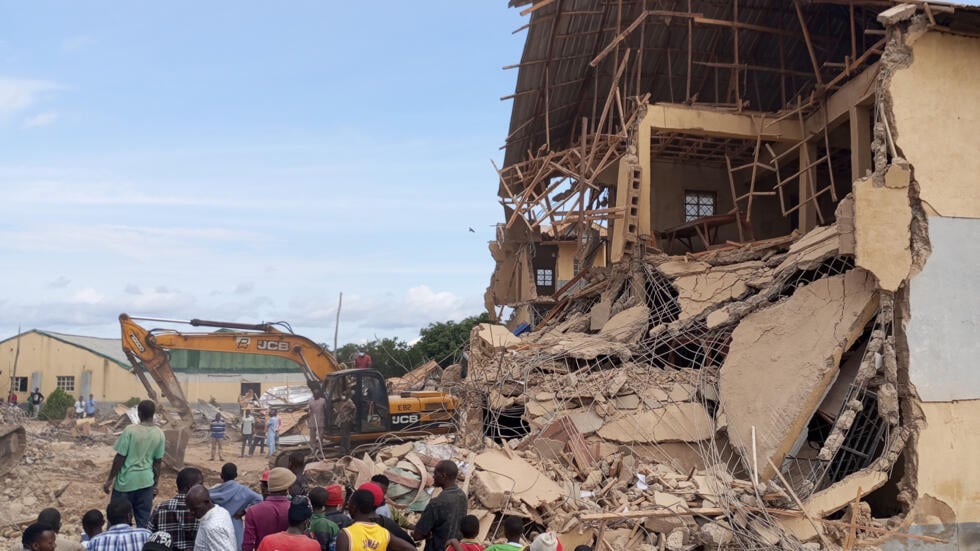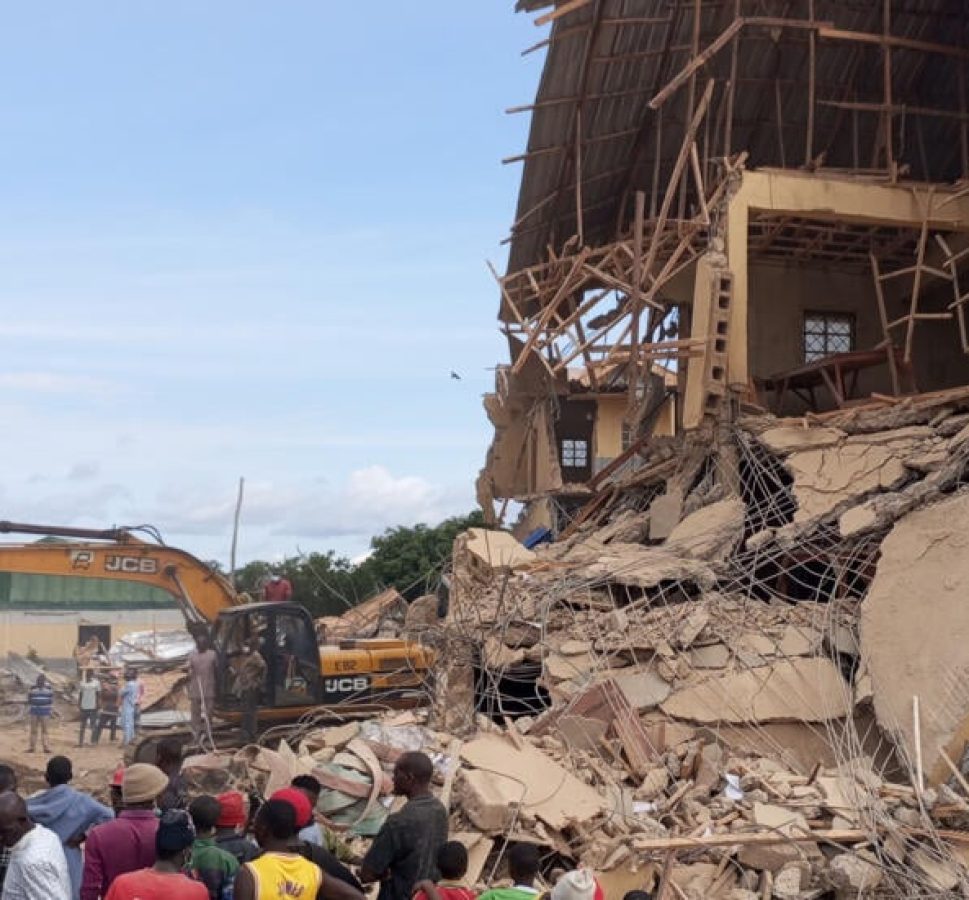
A breakdown of the incidents shows that Lagos accounted for 27.27% of the total, while Abuja and Anambra accounted for 18.18% each.
The Council for the Regulation of Engineering in Nigeria (COREN), the regulatory body responsible for overseeing the practice of engineering, has reported that Nigeria experienced 22 building collapses between January and July 2024.
This information was disclosed by COREN President, Prof. Sadiq Abubakar, during a news conference held in Abuja on Wednesday, the News Agency of Nigeria reports.
Titled ‘The Incessant Spate of Building Collapse in Nigeria in Recent Times – A Call for Sustainable Collaboration by All Stakeholders,’ the agency said it was aimed to address the growing concern of building collapses in the country.
According to Abubakar, a total of 22 building collapse incidents were reported in Nigeria between January and July 14, 2024.
A breakdown of the incidents shows that Lagos accounted for 27.27% of the total, while Abuja and Anambra accounted for 18.18% each.
This data highlights the urgent need for stakeholders to collaborate and address the factors contributing to these building collapses, ensuring the safety and well-being of Nigerians.
He added that Ekiti and Plateau followed with 9.09 per cent each and Kano, Taraba and Niger states accounted for 4.55 per cent each.
He said, “Records also showed that Lagos takes the lead in the incidences of building collapse.
“As a matter of fact, over 91 buildings have collapsed resulting in the death of over 354 persons in Lagos from 2012 to date.
“Similarly in Abuja, about 30 buildings have collapsed from 1993 till date resulting in the death of more than 64 persons and injury of many.
“The most recent occurrences of building collapse close to DMGS Onitsha, Anambra state on June 12 and that of a school (Saint Academy) in Plateau on July 13 where 22 students died and 134 injured as well as the building collapse in Kubwa, Abuja.”
Lamenting the worrisome trend, he called for deep reflection and collaboration of all stakeholders in stemming the tide.
“While we commiserate with all victims and families, we want to commend the efforts of all emergency and security services for their prompt response at the time,” he said.
According to Abubakar, the primary causes of building collapse differ by location. He noted that some buildings collapse due to aging, while others are attributed to the use of substandard construction materials and structural failure, as revealed by investigations and research conducted over time.
Additional factors contributing to building collapse include illegal change of use or addition of floors to existing buildings; quackery or unqualified practitioners; inadequate or lack of supervision and oversight; faulty foundations or failure to conduct soil/geotechnical investigations and sharp practices and corruption.






